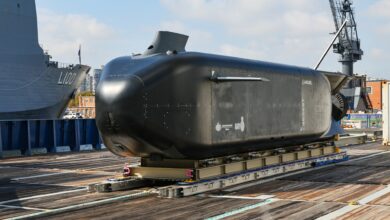Austal Turns Down Hanwha’s Unsolicited Takeover Bid
Austal confirmed Tuesday that it received an unsolicited bid from Hanwha to acquire the Australian shipbuilding giant for up to $663 million.
In a press release, Austal revealed that it had rejected the offer, citing concerns that the government would not permit the sale due to the sensitivity of the company’s operations.
Under the proposal, Austal shareholders would receive 2.825 Australian dollars per share. Hanwha also promised to bring important investments to support local communities in Australia.
Despite the generous offer, the Australian firm is skeptical about the potential sale obtaining relevant approvals from the Foreign Investment Review Board (FIRB), the Committee on Foreign Investment in the US, and other regulatory boards.
It said Austal has maintained its position as a designer and builder of military vessels for both Canberra and Washington, making the acquisition more complex than expected.
“At present, Austal is not satisfied that these mandatory approvals would be secured, however the company is open to further engagement if Hanwha is able to provide certainty on whether a transaction would be approved,” the shipbuildder stated.
Four Key Benefits
Hanwha said its more than 50 years of shipbuilding experience would help expand Austal’s growth, not just in building ships but also in producing autonomous technologies for maritime missions.
It would also bring stability to the company, with focus on providing more local jobs and exploring community partnerships.
Additionally, the world’s 26th largest defense contractor vowed to accelerate delivery of critical programs for Australia should the deal go through.
The potential acquisition would also help strengthen alliances, as Hanwha continues to cement itself as a respected ally to both Australia and the US.
“Hanwha’s acquisition of Austal would build upon the countries’ alliances and support Australia’s national security as a partner and ally, building upon a series of relationships between key defense and security partners,” it explained.












